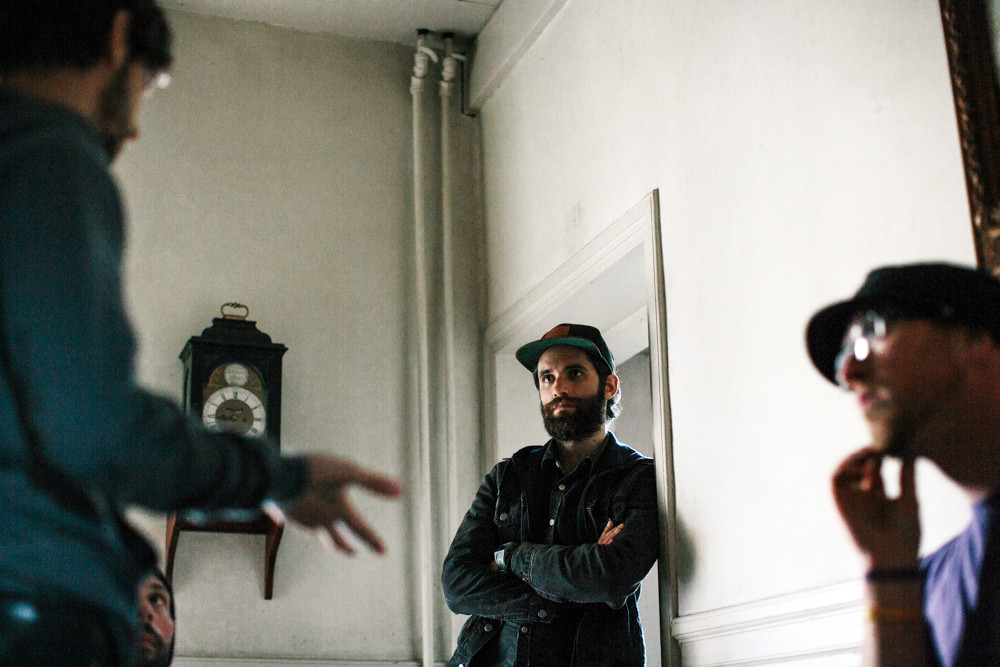Deciding to not make a film is hard. We’re living in the golden age of people making films — thanks to new technology and an increasingly low barrier to entry — and so often the ball starts rolling before we ask ourselves if we should roll it in the first place. In a craft that ultimately amounts to a series of impactful decisions, the first hard decision is whether or not to commit to your film at all. There is nothing worse than getting to the middle of a project, only to realize you’ve been making the wrong film.
So how can you tell the difference between a good idea and a bad idea? Well, it’s complicated. Plenty of good ideas have gone bad. (A movie about emojis sounded okay.) On the other hand, plenty of bad ideas have become instant classics. (A Western set in space? Are you kidding?) But barring the inherent you never know nature of great storytelling, there are a few questions you can ask yourself to increase your odds of betting on a winner.
Here are 5 questions every filmmaker should ask before making a film.

1. Is It Appropriate?
Not every story needs to be told. Not every story needs to be told by you. In Craig Ferguson’s stand-up comedy special, Does This Need to Be Said?, he offers a simple test to determine if you should say something. This applies to filmmakers and storytellers more than most:
- Question 1: Does this need to be said?
- Question 2: Does this need to be said by me?
- Question 3: Does this need to be said by me right now?
If the answer to any of these questions is no, it’s not the right time to make your film. Or you’re not the right person to make it. Or your film doesn’t need to be made at all. Don’t take it personally. There’s a story out there only you can tell. Find that idea. Tell that story.
2. Is It Novel?
According to the academic definition of creativity, when something is “creative” it is both appropriate and novel. It’s not enough for the idea to be “right.” It also needs to be new. It needs to be different. It needs to be, in some way, novel. Otherwise why make it?
The hard thing about doing something new, though, is that… well, it’s never been done before. There is no roadmap to the finish line, and the route will inevitably be littered with failure and obstacles. That’s why it’s never been done before. Which is why every film worth making is, in some way, impossible. Robert Legato, the special effects supervisor behind such “impossible” films as Titanic, Avatar, and The Jungle Book has this to offer us:
“Decide what you want to do. Find something that feels like a fresh way of telling a story. Then you will, by necessity, build the tools you need to make it happen. You don’t start with the tools; you start with the goal. ‘No, it can’t be done,’ is a call to arms. It eliminates 99% of people from doing it. Is it going to eliminate you? My favorite line is, ‘We’ve never done it that way before.’ Well, great! People have already seen it that way! If we’re going to do the same thing, why not just play the old thing again?”
Show us something we’ve never seen before, and you will be showing us something worthwhile.

3. Is It Challenging?
Sometimes the challenge of making a film is the reason for making it — not just for the audience, but for the filmmaker. The challenge is what makes you grow. Raises your bar. The challenge is your ROI. Danny Madden explains:
“I think [the challenge] comes through. Even if people don’t realize there was a struggle involved, it grabs them. In some subconscious way, the effort comes through. Sometimes it’s easy to look for tricks, or to want to master your craft to the point where you know what you’re doing and it gets easier. But if you get to that point, where what you’re doing is easy, then you’ve really lost something. What you’re doing starts to blend in. There is something about taking shortcuts that makes your work look exactly like the work of everyone else who’s taking shortcuts. … If there’s one thing I’d communicate to filmmakers, it’s that you’ll always hear people talking about how hard films are to make and how much time they take. Those are the exact reasons to make them.”
Is this next project of yours going to be challenging? Is it going to be really challenging? Is it going to be so challenging that it’s almost overwhelming to think about it right now? Good. Sounds like you’re making the right film.
4. Is It About Something Important?
If a story doesn’t feel important, what’s the point? It doesn’t just need to matter to you or the audience, it needs to matter to the characters in the film. A film is worth making when there’s something at stake for its subjects. This might seem obvious, but look at the vast majority of films on Vimeo and YouTube, and you’ll have a hard time articulating what’s at stake — and also why you care. When something matters to the characters of a film, it will inherently matter to everyone else.
“I see too many short films and movies that flounder without being important,” Director Jim Cummings told us. “It’s like, Why do I care about this? But if you make it about an incredibly dramatic human experience, I think that’s interesting to watch; and it’s a valuable experience for an audience.” Cummings would know. It was this exact line of thinking that led him and his team to the high-stakes scenarios for their award-winning series of one-take short films. “We said: What are the 10 to 15 most important minutes in these characters’ lives? We thought those minutes would probably be worth making a film about.”
Do your characters want something? Do they want it badly? Will it be devastating if they don’t get it? Don’t be afraid to set the stakes high. The higher the better.

5. Does It Resonate?
A good film is vulnerable. It’s honest. If the storyline isn’t willing to step out on a limb, then it won’t provoke the audience to do the same. Here’s a bit of advice from Heidi Pitlor, the series editor for the acclaimed The Best American Short Stories anthology, that can serve as a guide for anyone who wonders if their story is working. And, good news: it’s super simple.
“A good story tells you something interesting about someone,” Pitlor writes. “Things happen in a good story. People reveal who they are.”
That’s it. That’s all. On the most fundamental level, that’s what a good story is all about. Make things happen. Show us something interesting about someone. Tell us who your characters really are, and be brutally honest. When that work is done honestly and thoughtfully, your film will reveal not only something about your characters, but also something about us, the audience. We will resonate with it. And in that way, your film will be worth making.
Chances are, these 5 questions may confirm something you already felt in your gut. We know it doesn’t make it any easier, but maybe they can save you from the slog we mentioned before: finding out mid-process that you’re making the wrong film. It’s hard to “kill your darlings,” as William Faulkner put it, but it can also be one of the best filmmaking decisions you ever make. Alternatively, if your film survived our little filtering process, we hope it removed any doubt from your mind on whether it not it should be made. In that case, go boldly and never look back.





















































































